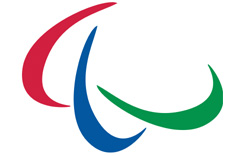Bonn-Germany, May 30, 2012: To coincide with the publication of its 2011 anti-doping statistics, the International Paralympic Committee (IPC) has announced plans to try to test every Powerlifting athlete at least once before they compete at the London 2012 Paralympic Games.
According to statistics published by the IPC today (30 May), a total of 646 blood and urine tests were conducted across all Paralympic Sports during 2011 with seven athletes receiving sanctions as a result of anti-doping rule violations.
In Powerlifting, a sport governed by the IPC, 95 blood and urine tests were conducted last year with four athletes committing anti-doping rules violations, making it the worst offending sport.
Earlier this month the IPC announced that two further Powerlifting athletes had received sanctions for anti-doping violations committed during 2012.
As a result, the IPC has announced plans to try to test all 200 athletes that will be competing in the sport at least once between now and the beginning of the London 2012 Paralympic Games. This will be in addition to the IPC’s Anti-Doping work in all other sports.
Dr. Jose A. Pascual, Chair of the IPC’s Anti-Doping Committee, said: “Of all the sports in the Paralympic programme Powerlifting is the one where we are seeing the most anti-doping rule violations and we are determined to work hard to reduce this figure. However, unintended anti-doping rule violations due to the use of supplements and lack of awareness are the main reason for this situation.
“We have launched an education programme on the roles and responsibilities of athletes in the doping control process, made coaches aware of the free online course Coach True that is available by WADA and informed both parties of the Prohibited List and dangers of supplement use.
“In addition to this we will be dedicating significant resources to try to test every powerlifter ahead of and during the London 2012 Games. We want to ensure that all record breaking and medal winning performances by athletes at the Games are from clean athletes taking part drug free.
Jon Amos, Chair of the Sport Technical Committee for IPC Powerlifting, said: “The Sport Technical Committee is fully supportive of the IPC initiative to try to test every Powerlifter at least once before competing in London and hopes that this sends out a very strong and clear message to all Powerlifting athletes that doping will never be tolerated, in any form whatsoever. The identification and suspension of four lifters in the past year is also considered a positive reflection of the collaborative, proactive, stance being taken against those that feel that they can beat the system.
“Four anti-doping rule violations in one year in one sport, is four too many and the sooner we can eradicate doping from all sport, the better.”
Across the nine sports governed by the IPC 503 urine and 40 blood tests were conducted during 2011.
In sports not governed by the IPC, 103 urine and blood doping control tests were conducted at events including the 2011 Parapan America Games, BT Paralympic World Cup and 6th ASEAN Games – all multi-sport competitions conducted under the IPC’s governance.
A copy of the IPC’s anti-doping statistics for 2011has also been provided to WADA, as required by the IPC Anti-Doping Code.
During the London 2012 Paralympic Games approximately 1,250 samples will be analyzed at a laboratory which is provided by GlaxoSmithKline (GSK) and operated by King’s College London. The laboratory measures the size of seven tennis courts, will be in operation 24 hours a day, seven days a week.


Leave a Reply
You must be logged in to post a comment.